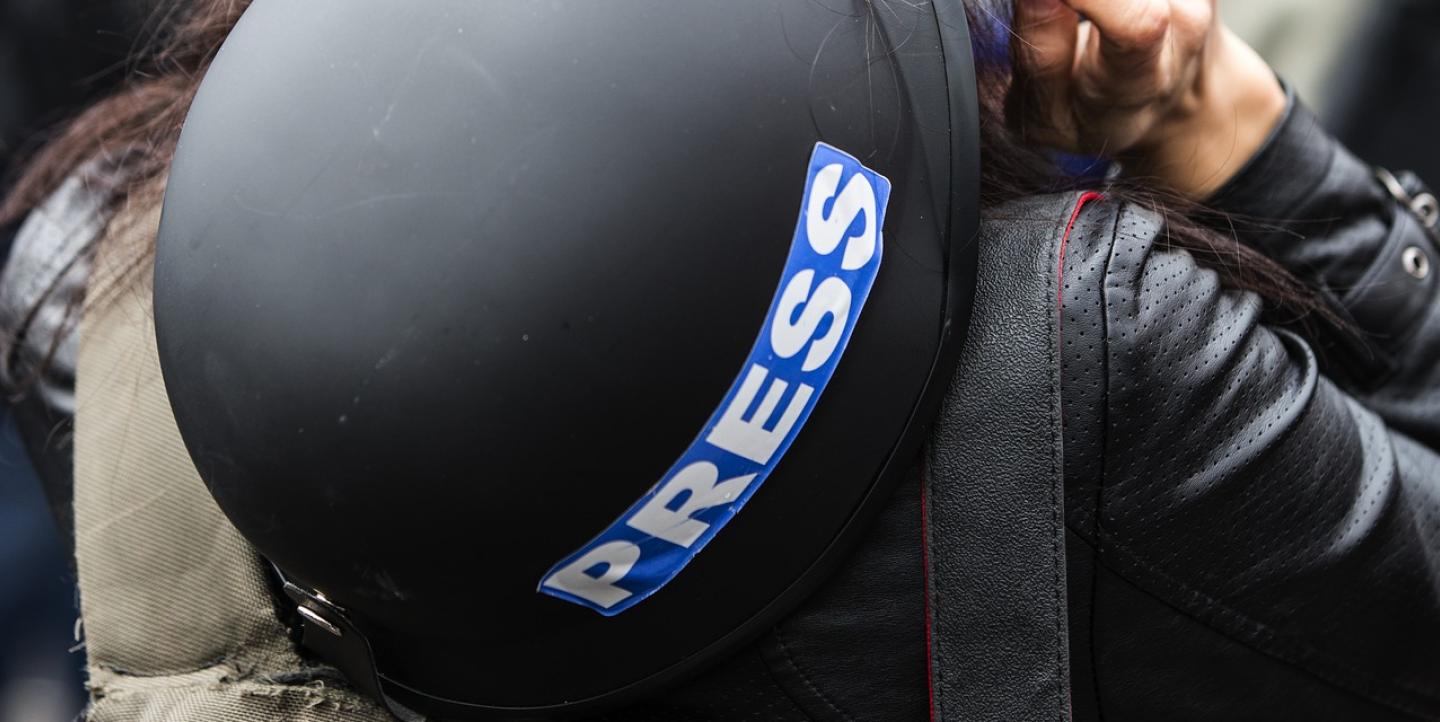In just the past year, the Taliban’s recapture of Afghanistan and Russia’s full-scale invasion of Ukraine has put journalists in heightened danger. Meanwhile, press freedom today is deemed “very bad” in a record 28 countries, according to the 2022 World Press Freedom Index by Reporters Without Borders (RSF). Authoritarian regimes in China, Iran and Belarus, to name a few, continue to stifle free speech and the independent media.
Alongside these developments, journalists’ safety is increasingly at risk. The Committee to Protect Journalists (CPJ) has documented 541 journalists killed and another 1,123 imprisoned worldwide in the past decade alone.
The Journalists in Distress (JiD) Network seeks to offer a helping hand to journalists in danger. Formed in 2006, the JiD comprises 23 organizations globally, each offering different ways to assist.
CPJ, for instance, offers funding for journalists fleeing conflict zones, as well as non-financial assistance such as letters of support for visas and digital safety training. The Rory Peck Trust offers training and programming for journalists to enhance their digital and physical safety skills.
Through both individual and joint emergency response initiatives the member organizations have helped thousands of reporters according to Johanna Pisco, programmes manager at Rory Peck Trust. “Coordination amongst organizations that are able to provide resources to journalists in need of support, at times like those we’ve recently witnessed, [is important] — to empower them, and allow them to build resilience while they continue to do their invaluable work of holding power to account,” said Pisco.
The Rory Peck Trust and CPJ manage the JiD together with Free Press Unlimited. They coordinate with the other members to connect journalists with the help they need.
Member organizations not only want to help when journalists are in danger, but also equip them with the training and resources to avoid or reduce risk in the first place. “[Journalists] need to prepare themselves. There are so many resources online where you can prepare yourself and take risk assessments. Safety courses are a must,” said Catalina Cortés, journalist assistance coordinator at CPJ.
In conflict zones, on-the-ground reporting is especially vital. Journalists, however, may be targeted while on the job. It’s essential that reporters know how to protect themselves in these situations. “Make sure they are equipped with everything they need. If they don’t know what they need, reach out to an organization for a risk assessment,” said Pisco.
The JiD rolled out a new website earlier this year, allowing journalists to browse its member organizations to identify which may best be able to help. It’s part of an effort to keep up with the many assistance requests they received during the past year’s crises.
When the U.S. pulled out of Afghanistan in summer 2021, for instance, JiD became overwhelmed with requests for help from journalists and media professionals in the region. Managing expectations was difficult as many people seeking assistance thought member organizations could help in more ways than they actually could.
JiD also hopes its new site clarifies some misconceptions about the network. For example, membership — journalists don’t “join” the network, organizations do. Reporters can find links to a member organization’s homepage on JiD’s landing page, but they must reach out separately for assistance. “JiD is not an organization, it’s an informal network made up of organizations,” said Cortés. “We don’t have funding. Each organization has its own mandate.”
Throughout history, journalists have been tasked with reporting the truth. It’s an undertaking that’s never been free from risk, as journalists have too often become targets of violence or retaliation because of their work. Just this year, Russia’s invasion of Ukraine has resulted in the killing of 18 journalists, and last week prominent Palestinian journalist Shireen Abu Akleh was killed while on the job.
It’s important that journalists keep in mind: their safety should always be the top priority. Above all, Pisco and Cortés want journalists to be prepared before reporting in conflict zones, and receive support when they find themselves in danger.
As Pisco put it, “The work we do as journalists, the starting point, is to make our mark in history — but an article is not worth our life.”
Image by Engin Akyurt from Pixabay.


